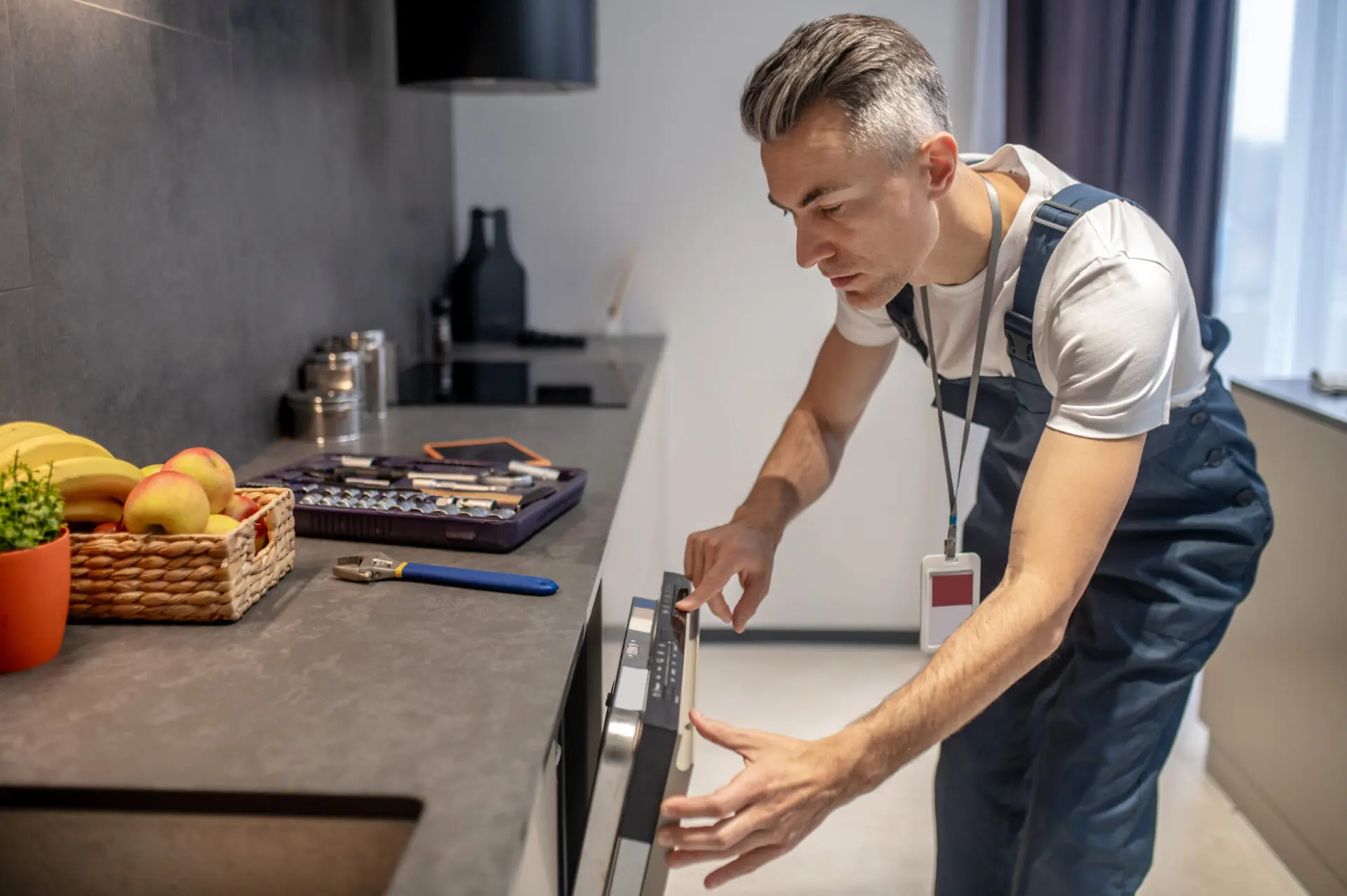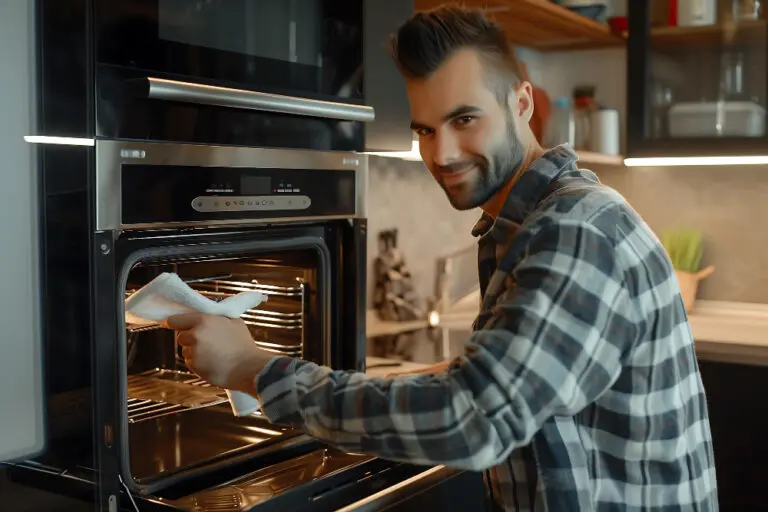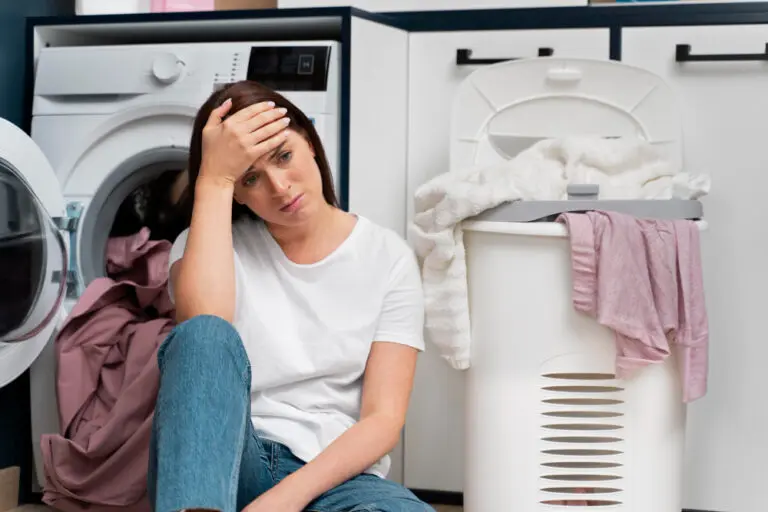Problems With Dishwashers
If your dishwasher leaves dishes dirty, check for overloading, blocked spray arms, dirty filters, and proper detergent use. Inspect for leaks, drainage issues, and electrical connections.
dishes don’t wash properly, come out of the dishwasher dirty or covered in residue
Possible issues:
- Overloading or pilling up dishes on top of each other? Anything is restricting the spinning motion of the spray arms? Loading plates in the machine without scraping food off of them first?
- Spray arms are not spinning. Try to spin the bottom and top arms with your hand to make sure they spin easily. If neither do or if they’re covered in dirt or food debris, remove them and gently clean with toothbrush and a pipe-cleaner. Once replaced, try running a clean cycle to see if your dishes fare any better.
- Filter is dirty. Pull it out and clean it
- If your dishes come out covered in water spots and/ or with a white residue on them, a simple rinse aid may help to solve this problem. Make sure your rinse aid dispenser adjusted to the max amount allowed.
- Glassware film is caused usually by hard water. Dishwasher detergents and additives that are designed especially for hard water can help with it.
- Dishwasher doesn’t get water because water tap is closed.
- Float switch can get stock in the upper position. Make sure that nothing obstructs it from going down and that might be preventing it from functioning properly.
Your dishwasher leaks onto the floor
- Reduce soap amount that you use to clean your dishes
- Check your dishwasher door and door gasket for any cracks, damage, or large debris that could be preventing the door from sealing completely. Try cleaning your door gasket with vinegar, and if you see any large cracks, you will likely need to replace the gasket.
- The float switch may be stuck in the down position. This can cause your machine to overfill and leak onto the floor. If your float switch is stuck, make sure that nothing obstructs it that might be preventing it from functioning properly.
Your dishwasher doesn’t dry your dishes
- Check heating element first.
- If your heating element is in working order, check the high-limit thermostat. A malfunctioning high-limit thermostat can cause the heat to shut off before your dishes are fully dry.
- Check your rinse aid dispenser to make sure it’s not empty and that it’s dispensing properly. Without rinse aid, your dishes will not dry as easily.
- Plastic dishes don’t generally get dry as they don’t absorb the heat.
Your dishwasher smells bad
- Look through your machine carefully for any old wet food, and clean your dishwasher’s screen (located at the bottom of your machine).
- If your dishwasher has a chemical smell, a plastic plate or Tupperware container may have fallen down and melted onto the heating element. Dishwasher hasn’t been used for a long time
- Drain might not be connected properly
Your dishwasher doesn’t start
- Check the power sources to make sure you haven’t blown a circuit braker and ensure the outlet isn’t malfunctioning. If your dishwasher is plugged in, try to plug it in another outlet. If it’s hardwired, check the circuit braker.
- You can even try power cycling the dishwasher unplug it for a minute and plug it back in
- Check for any problems with the door
- If it sounds like your dishwasher is trying to work, but it just won’t run correctly, your motor may be stuck
Your dishwasher isn’t draining properly
- Run your garbage disposal first. The dishwasher typically drains into the same drain the garbage disposal uses. If it is a problem with your disposal system, like built-up food sediment, this can prevent proper dishwasher drainage. If you just installed a new garbage disposal, the drain plug may still be in place, which means the dishwasher can’t access its drainage. Make sure the drain plug is removed and the dishwasher drain hose is properly connected if you have a new disposal system.
- This problem is obvious because your dishwasher floods the floor with water when you try to open it. First, try running your dishwasher a second time. A dishwasher that was unexpectedly turned off (say, by a brief power outage) could still have water inside because the cycle wasn’t complete. Simply running the cycle again can fix this problem.
- Check if air gap is plugged up
- Drain hose is plugged up
- Drain pump needs to be replaced
Your dishwasher starts making a lot of noise
- If the noise is during wash or drain cycle, it means one of the motor bearings or motor pump bearing are wearing out and they need to be replaced
- If it makes noise during fill cycle, it’s possible that your house water pressure is too high or too low, so you need plumber to fix it.
- Also your dishwasher can make noise during fill cycle if valve solenoid is defective and it will need to be replaced
Your dishwasher doesn’t dispense soap
- If soap dispenser is not opening, potentially soap mechanism or control board needs to be replaced
- The dispenser compartment might not be opening correctly as the dishwasher runs. Examine the big dishes or cutting boards positions, as sometimes they can block the compartment from opening and releasing soap.
- This may be due to a lack of water flowing into the compartment and dissolving and dispensing the soap. Try to use less detergent or use the liquid form.
Need Professional Help?
If you haven’t been able to fix the problem with your appliance on your own, don’t worry. Our experienced technicians are ready to help.
Don’t let minor problems turn into major breakdowns. Trust the repair of your appliances to professionals!








